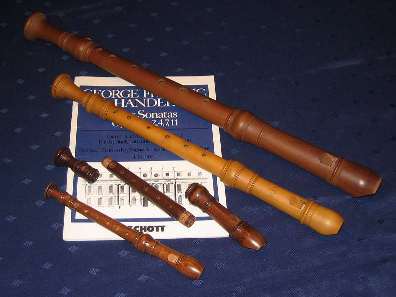Revitalize your writing life with free weekly life strategies for writers.
Every afternoon, after several hours of writing, I leave my desk, pick up one of my two musical instruments—the recorder or the viola da gamba—and play.
For a while, I focus solely on my music, usually playing works from the Middle Ages, the Renaissance, or the Baroque Period. I play for the sheer fun of it and because I want to improve my skill, but also because I need time to get completely away from writing. Playing music is my way of taking a mental break from words, and it is essential to my creativity.
Recorders. (Picture from Wikipedia Commons. Author: Mussklprozz)

Viola da Gamba. (Picture from Wikipedia Commons. Author:HaCeMei)
Psychologists and neuroscientists are becoming more and more aware of the importance of resting your brain. While we may wish we could plow through hours of productive writing, most of us have periods of time when our focus strays and our creativity sags. It’s possible to push through those times—but it’s not wise. When your brain refuses to focus on the page in front of you, it’s telling you something important: It needs a break. Give it one.
“Mental breaks increase productivity, replenish attention, solidify memories and encourage creativity,” writes Ferris Jabr in Scientific American. Phyllis Korkki agrees: “Taking regular breaks from mental tasks improves productivity and creativitity, …skipping breaks can lead to stress and exhaustion.”
According to Linda Wasmer Andrews, most people can sustain focus on a mental task for about 90 minutes. After that, they should do entirely different for a time. As Andrews puts it, “The more different, the better.”
A lot has been written about the ways meditation, napping, and physical exercise can aid mental focus. But often, what the writer’s brain simply needs is nonverbal activity. You don’t have to do yoga, focus on your breath, or sit on your meditation cushion for 30-minutes to give your brain a break from writing. There are a host of activities you can use. Crafts of all sorts have many of the same mental-health benefits of meditation. Cooking activates our senses in unique ways. Gardening has the added advantage of getting you out of doors. And if you are loath to add a new hobby to your schedule, all you have to do is housework. A little time vacuuming up the dust bunnies and cleaning the kitchen sink will clear your mind and get your house clean.
All of these activities have one thing in common: They are nonverbal. Even though they require focus, as writing does, they utilize different types of attention, information processing, and memory. Using them as a break from writing is like switching from lower-body to upper-body exercise to give your glutes and quads a rest. In contrast, verbal activities we might think of as restful—such as reading or watching a movie—don’t provide as much of a break from writing.
When I sit back down at my desk after 20 to 60 minutes of music, the transformation is astonishing. My energy is replenished, my creativity is soaring, and sentences that refused to budge a half hour earlier come rushing out.
If you struggle with focus, try interspersing your writing with nonverbal activities throughout the day. Don’t use your breaks to check your email or catch up on the news. Use it doing something that takes you far away from words. When you return, you’ll be surprised at how focused, refreshed, and energized you feel.
